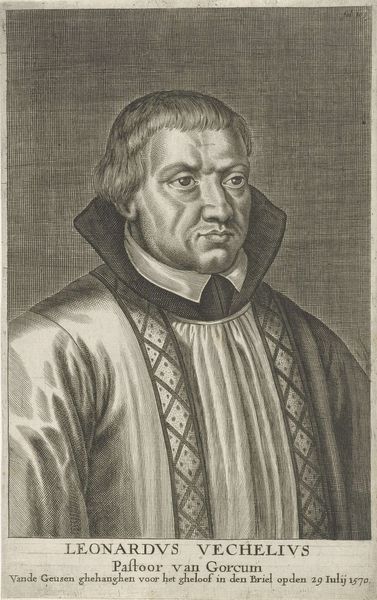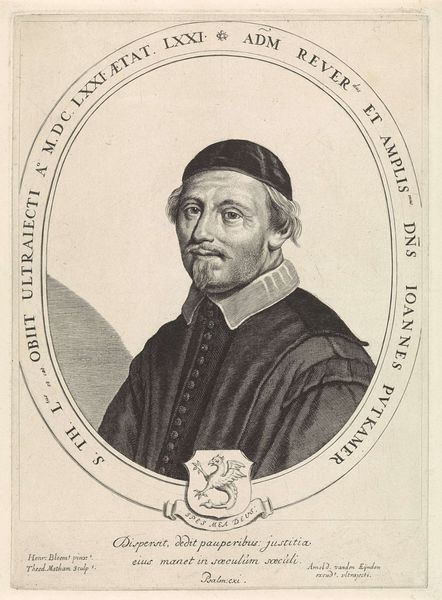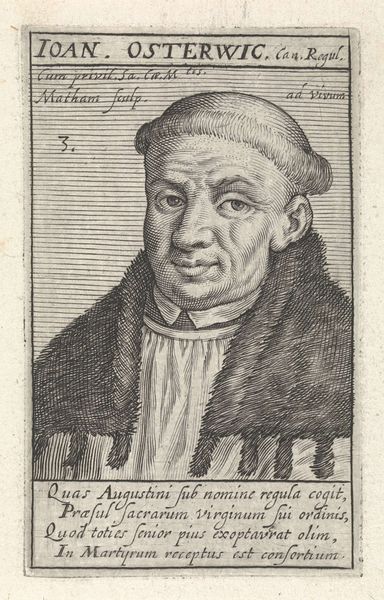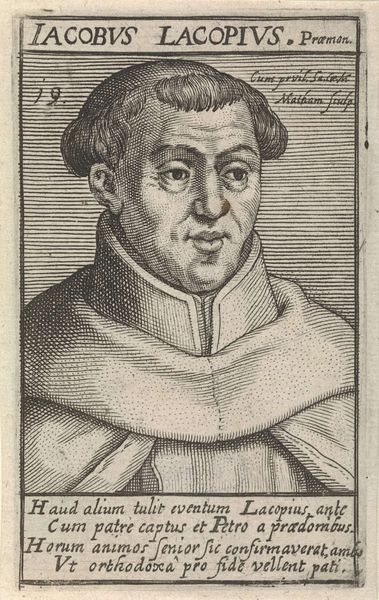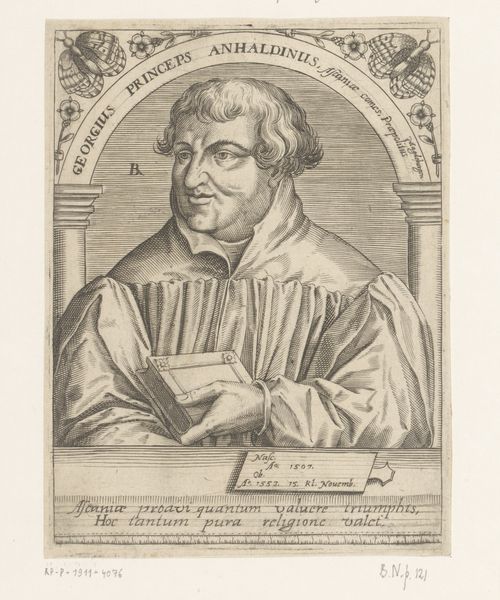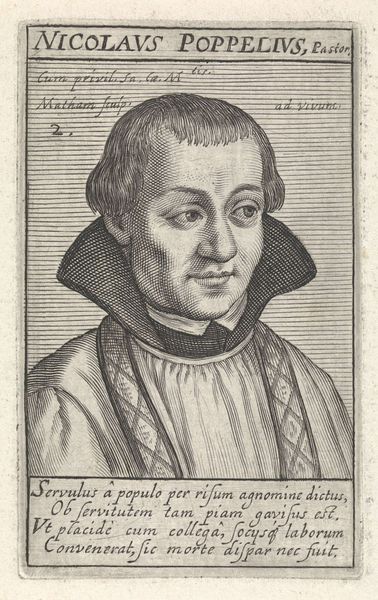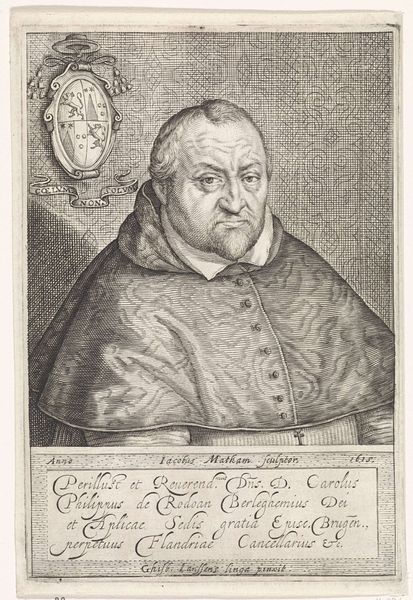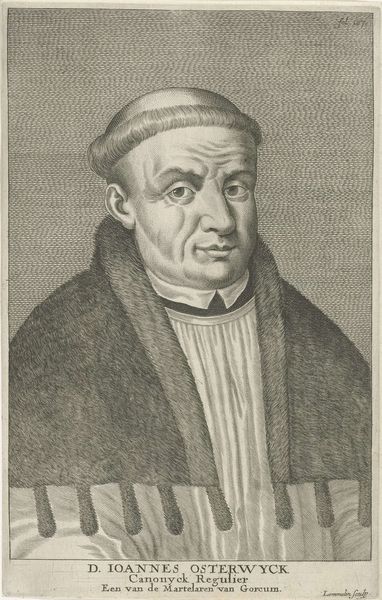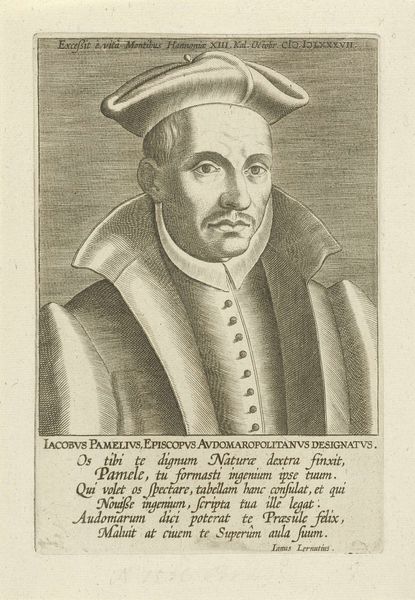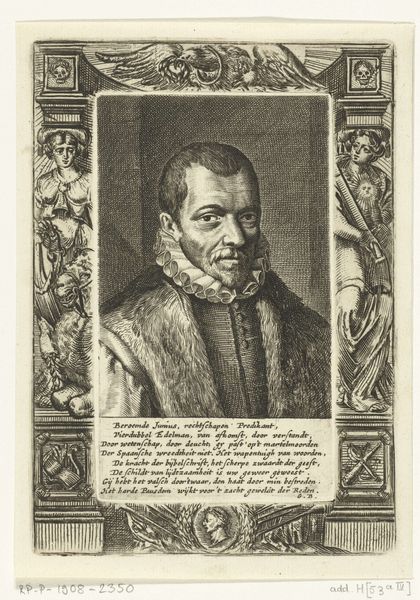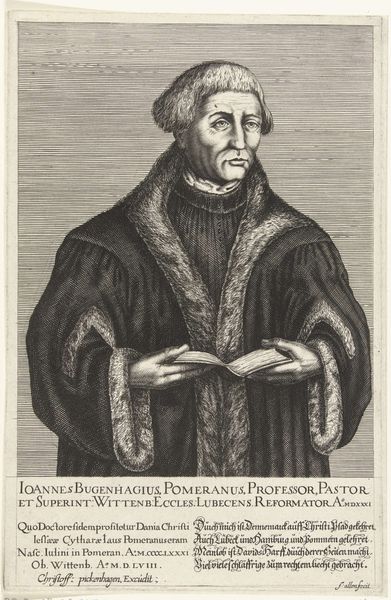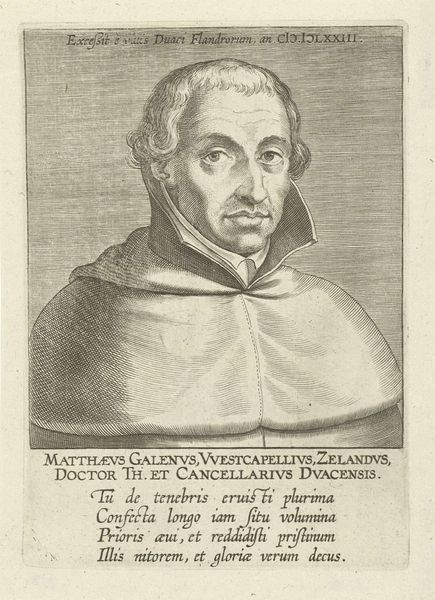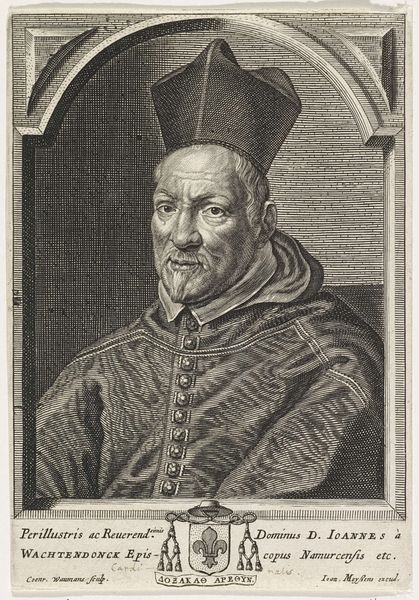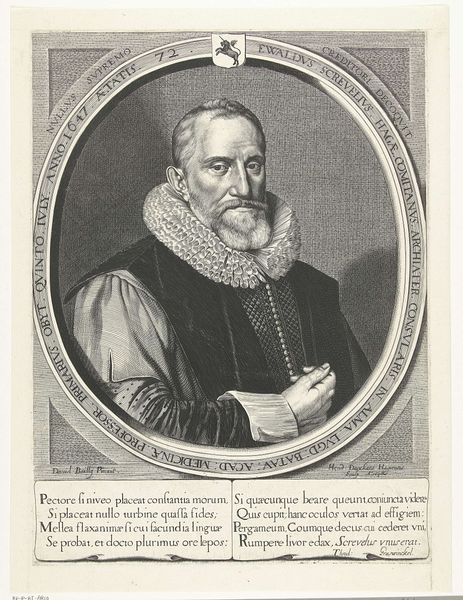
print, engraving
#
portrait
#
baroque
# print
#
old engraving style
#
engraving
Dimensions: height 169 mm, width 107 mm
Copyright: Rijks Museum: Open Domain
This portrait of Petrus Simons, made by Philips Galle around the late 16th century, is an engraving. To create it, Galle used a sharp tool called a burin to carve lines into a copper plate, which was then inked and printed. The density of these etched lines gives the print its tone, creating shading and texture. Look closely, and you'll see how the varying widths and depths of the lines define Simons’ features and the folds of his garments. This was a laborious process that demanded precision and control; it was also a reproductive technology. This kind of printmaking was crucial for disseminating images and ideas throughout Europe. The format of the print – with an inscription in Latin beneath the portrait – positions Simons within a tradition of learned authority. But it also reflects the growing importance of print culture as a means of shaping public perception. In essence, Galle's engraving demonstrates the potent combination of skilled craftsmanship, intellectual authority, and the mechanics of mass production.
Comments
No comments
Be the first to comment and join the conversation on the ultimate creative platform.
